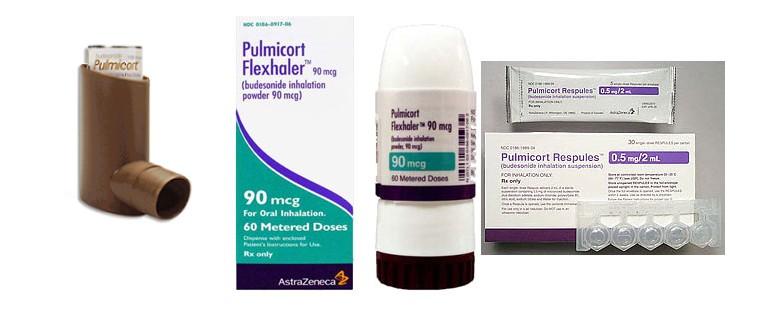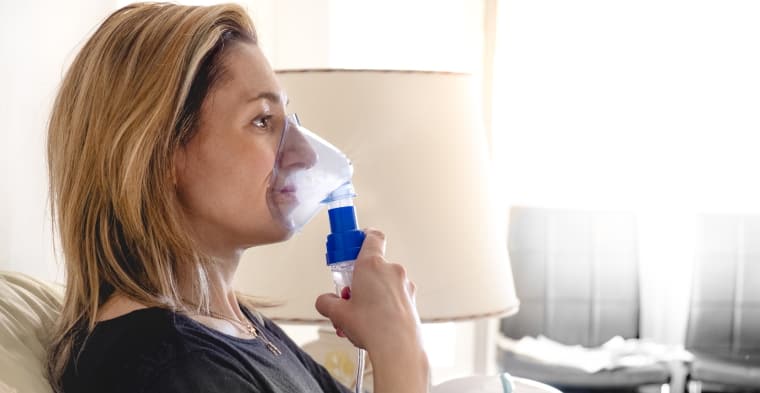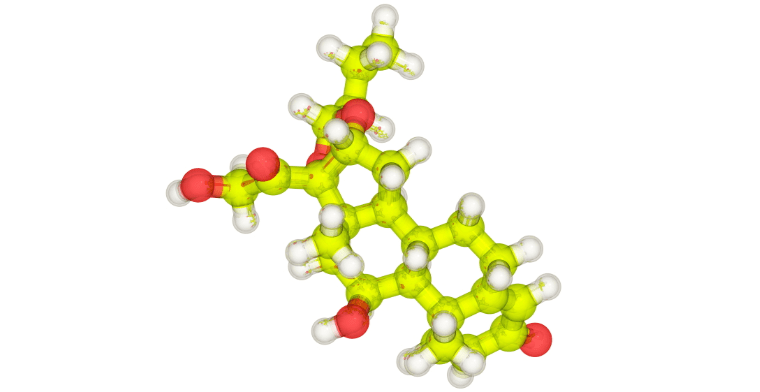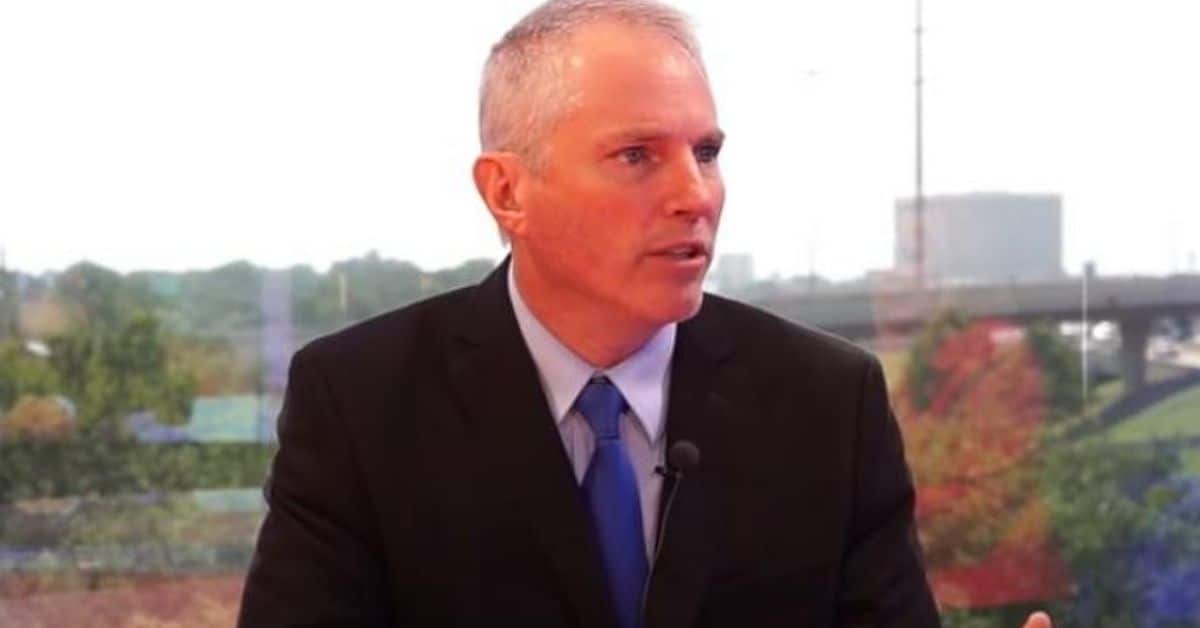By: Clare Bruce
A Christian doctor in Texas has drawn international attention for heralding a common asthma medication as the “silver bullet” against COVID-19.
And while some health authorities have criticised his bold claim – including the World Health Organisation, which has said “there may never be a silver bullet” – researchers in several nations including Australia are still racing to complete medical trials, that will find out if the drug is as effective as he believes.
Dr Richard Bartlett, an emergency doctor with 28 years’ experience in intensive care as well as medical missionary work on international disaster zones, says he was inspired – through prayer – to treat his COVID-19 patients with budesonide. It’s an asthma medicine that’s been around for nearly 40 years.
Introduced in the early 1980s, budesonide is well known by the commercial name Pulmicort. Taken via an inhaler or a nebuliser, the anti-inflammatory steroid is commonly used by asthmatics, from infants and children to the elderly. In the case of COVID-19, the steroid suppresses what is known as the “cytokine storm” – the body’s overreactive immune response to the virus – thereby reducing dangerous symptoms such as fever, inflammation and fluid on the lungs.
Pulmicort/budesonide is now ‘out of patent’, meaning it no longer delivers big profits to pharmaceutical companies—and is cheap. That’s a big plus when compared to experimental COVID-19 treatments like Remdesivir, currently being trialled at thousands of dollars per patient.
Outstanding Success Rate
Dr Bartlett, who has been a CBS TV medical expert for over 20 years, says he’s had a “100 per cent success rate” so far using budesonide in a nebuliser to restore hundreds of COVID-19 patients to health.
His protocol, which he began using in March, also includes zinc, aspirin, and an antibiotic to fight secondary infections.
“100 percent of my patients are alive,” he has said. “They tell me, ‘I feel better during the first treatment’. Their chest pain goes away. Their shortness of breath goes away. Their fever breaks… Every one of them’s living, not dying.”
In a briefing last week with community leaders, Dr Bartlett said he’s treated 200 COVID patients in just one of his clinics alone. Few have been hospitalised; all have recovered.
Success stories include the elderly, the oldest being 81, and medically vulnerable people with pre-existing diseases—even a cancer patient undergoing chemotherapy.
“The sickest of the sick are responding to this,” he said. “We’re talking about patients who become symptom free, and then have two consecutive negative [test results]. That’s the definition of a cure from COVID… I have story after story of happy endings.”
Inhaled Steroids in Use in Hospitals Around the World

Dr Bartlett points to other countries with very low COVID-19 deaths, such as Taiwan (7 deaths), Iceland (10), Singapore (12), and Japan (1012 in a population of 126 million) and – though not all doctors concur – he is pinning those nations’ success on inhaled corticosteroids.
“It’s what Japan stumbled on… and Taiwan stumbled on… an inhaled steroid,” he said. “They’re using a different one… The one I’m using, I think, is better – inhaled budesonide – with a nebuliser treatment.”
Some US hospitals have begun using the protocol, too.
One hospital in San Antonio, Texas, was having to intubate half of all its emergency COVID-19 patients before starting the new treatment in June. Now, “their ICU is empty”, says Dr Bartlett.
“They’re using this strategy in their clinic in their community, as an early treatment, and it’s keeping people from even having to go to the ICU in the first place in that city.”
But Is it a ‘Silver Bullet’?
Dr Bartlett’s story first came to light on a Texan TV news channel, and is now making waves around the world via an interview going viral on social media.
But his choice to call the treatment ‘The Silver Bullet’ for COVID-19, has drawn criticism from health authorities. They say his findings are only anecdotal, and it’s too early and dangerous to make such a claim without the rigorous science to back it.
The World Health Organisation has said “there may never be a silver bullet”; the Philippine health department labelled his claim ‘fake news’; an early review in the European Respiratory Journal in April said there wasn’t enough evidence yet; a Texas hospital declined to try the treatment without proper research; and the chief medical officer for Dr Bartlett’s health region of Odessa said “silver bullet” was an inappropriate label based only on local successes.
“That’s not how science works,” Rohith Saravanan told CBS7. “You take thousands and thousands of patients across multiple countries, multiple sites, you blind them, you control certain people, certain treatments. And then you compare the groups. It’s not that he’s doing something wrong. He’s sharing what he found could be useful to the scientific community.”
“There’s more than one way to treat this. I have a way that’s working and saving lives.”
Fact-checkers like Agence France Press (AFP) and the CBS TV segment VERIFY, dismissed Bartlett’s ‘silver bullet’ claim as either ‘misleading’ or ‘false’ – quite simply because the World Health Organisation (WHO) and the Centers for Disease Control (CDC) haven’t yet declared any cures. They require large quantities of research before making such statements.
Nevertheless, Bartlett has forged ahead in spreading the word, arguing that in a rapidly unfolding pandemic situation, with the US death toll still often exceeding 1,000 each day, there’s no time to stay silent.
“There’s more than one way to treat this,” he said. “I have a way that’s working and saving lives.”
Researchers in Brisbane and Oxford Join Forces in a Trial

And his zeal seems to be paying off, with the science community now conducting several budesonide trials around the world – including one in our own backyard.
Australian researchers from Brisbane’s Queensland University of Technology are currently collaborating with the University of Oxford in a clinical trial called STOIC (SterOids In COVID-19).
The study, involving around 500 COVID-19 patients living in Oxford, UK, aims to find out scientifically whether budesonide really is an effective early treatment for COVID-19.
One of the lead researchers, QUT’s Associate Professor Dan Nicolau, said the idea for the study was born early in the pandemic. He was looking over data one day with his Oxford colleague, respiratory doctor Professor Mona Bafahdel, when they noticed something surprising: very few people with asthma and the lung disease COPD, were being hospitalised for COVID-19.
“This seemed paradoxical,” Professor Nicolau said, “because COVID-19 affects the lungs – and these patients have lung problems – so they should be more at risk of severe disease from the virus.
“One explanation for the low numbers was that something these people were doing regularly was protecting them. And that, logically, was that they routinely used inhalers for their chronic lung problems.”
Early numbers in the study are promising, and Prof Nicolau suggests that it could mean, “the earlier we apply the inhaled steroid treatment, the more people we’ll be able to keep from getting sick”.
“Ideally it may be that the corticosteroid therapy would be given to anyone with a new, dry cough, and while they are awaiting their COVID test results.”
Trials Around the World
Several other trials into inhaled steroids including budesonide are also underway in the USA (two studies), Spain, Iran, South Korea, and France (two studies).
Dr Bartlett fears the study being conducted by the National Institute of Health (NIH), though, is “set up to fail” – as it’s only trialing late-stage patients with pneumonia; whereas his approach is to detect and treat early.

Last week in an article in medical journal The Lancet, Prof Nicolau responded to critics of the budesonide trials.
“Whether use of ICS protects against COVID-19 is still unknown, but to dismiss this hypothesis as nonsense is premature,” he writes. “ICS as a therapeutic intervention still need to [be] studied… the results of [clinical trials] are eagerly awaited.”
Other common steroids are proving powerful weapons in the pandemic, too. In June, dexamethasone, a cheap steroid often used for arthritis, was proven in a UK study to be key in saving the sickest COVID-19 patients. Researchers say it could have saved up to 5,000 more lives in the UK if it were used from the start.
And another useful treatment, convalescent plasma – taken from recovered COVID-19 patients and rich in antibodies – is now close to approval by America’s Food and Drug Administration (FDA).
Inspired in Prayer
Dr Bartlett first began using budesonide on the pandemic frontlines back in March.
He believes God gave him the inspiration for the treatment, saying the idea formed in his mind after he had taken time out to rest and pray in the middle of a gruelling 48-hour ER shift.
“I was distraught, quite honestly,” he said. “I’m a Christian, and I was praying throughout that 48 hour shift. I’d see patient after patient. I was thinking ‘God, what am I gonna do if someone comes in here with COVID and they’re dying? They’re gonna trust me to do the right thing for them, and I don’t have an answer’.
“So I was praying, I laid down for a catnap between patients; I woke up, convinced that God had given me a winning strategy. A week later I had to try it on my first two patients. And for every patient, it’s working.”
Don’t Fight it Alone; Go And See Your Doctor
On his website, Dr Bartlett outlines his protocol, along with a 16-page case study whitepaper.
He urges people showing any signs of COVID-19 to see their doctor immediately, and not to ignore it or try to treat themselves.
“Doctors treat individuals and the doctor-patient relationship is sacrosanct: it is between the patient and the physician to decide a treatment plan that is best for the patient,” he writes.
He stresses that early treatment is key, and he is critical of official advice being given to Americans to seek help only when their symptoms are severe.
“Early detection and early treatment are common sense,” he said. “We don’t say, ‘Wait til you have stage four cancer and then seek help’. We don’t do that with any other disease.
“I get calls from people who go to the ER because they feel bad, and they’re sent home with a positive test, saying ‘take Tylenol and tough it out at home’. That’s a terrible plan for any health care problem – especially one that can kill you.”
Article supplied with thanks to Hope Media.
About the Author: Clare is a digital journalist for the Broadcast Industry.

